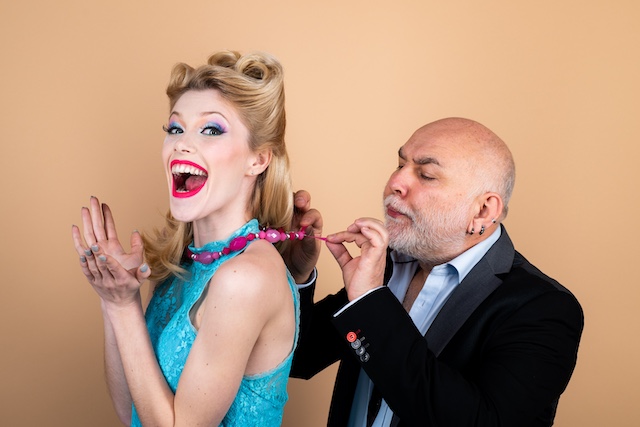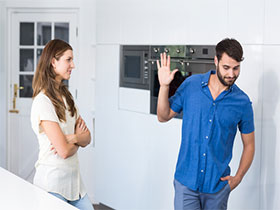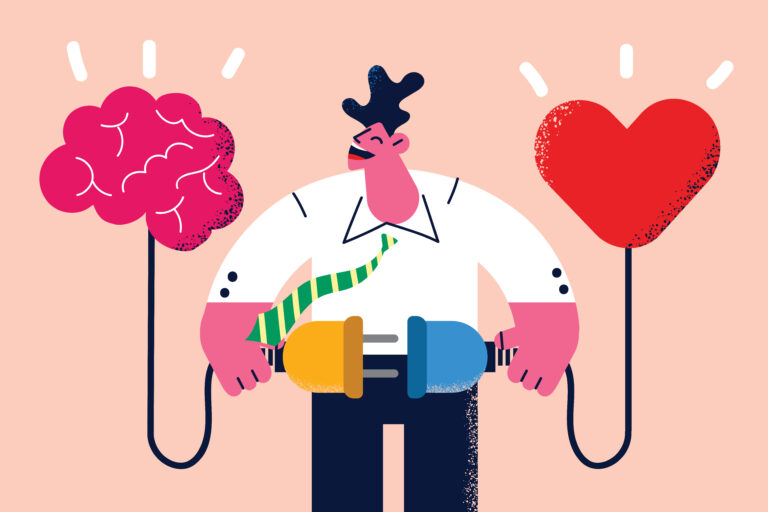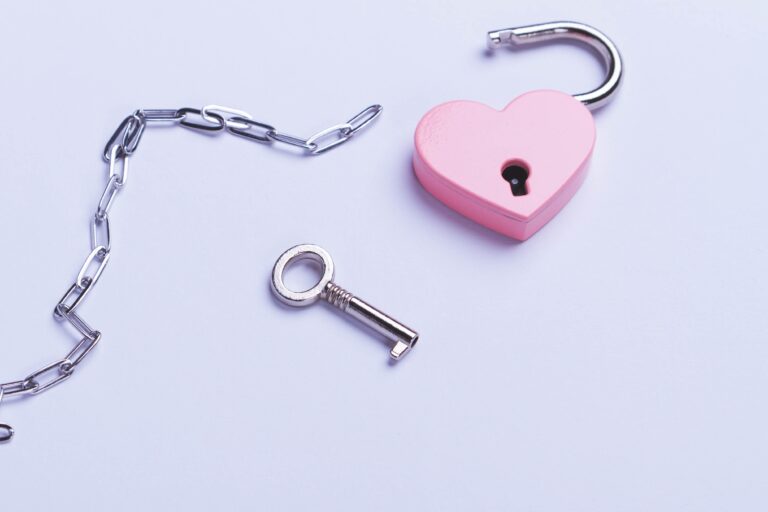Learn Ways to Trust People Again, and Why it’s So Important
Trust that you can trust people again!
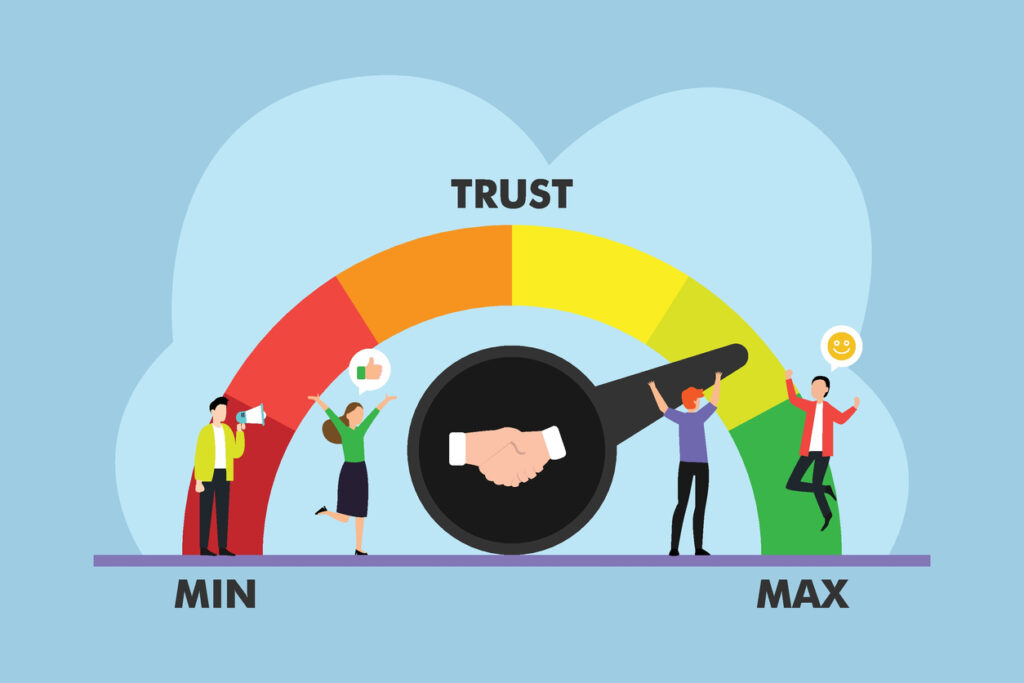
by Becky Whetstone, Ph.D.
Jenny was 18 years old, and my heart ached to see her cry over the loss of her first love. Who doesn’t know the traumatic experience this bestows? It was one year after it had ended, and her father was so worried about her continuing withdrawal and isolation from friends and activities that he asked me to see if I could help. In our first session, Jenny admitted that she didn’t want to come to counseling because she felt she already knew what to do, and that was to not trust people. To her, opening her heart up to anyone, but especially to potential romantic partners, was ground zero for all her past wounds.
“It’s not worth the risk,” she said. “I don’t want to hurt again, and professional help won’t change that.”
No one wants to hurt again, but professional insight can help. All humans get hurt, many of us withdraw, but the day will come when you wake up and feel that tingle once again and know that you are ready to pursue the feeling that only intimate relationships can bring. But to have a romantic relationship that works, or any close relationship, you will have to take a risk, but it can be an intelligent risk. At only 18, Jenny’s plan for moving forward was not the plan I would choose for her. To me, one of the most tragic decisions a person can make is to never allow themselves to love and trust a partner a second time like they did the first time. There must be a way to vet friends and potential mates and end up with the type of trusting relationship we all long to have. The type of trust that allows you to take your walls down, keep them down, and enjoy the fulfillment that solid interpersonal relationships bring.
First steps to trusting people.
The most important thing you can do to set yourself up trusting future relationships is to choose friends or lovers who are solid human beings. I’d like to assume everyone knows what that is, but judging by my therapy practice, I see that people either don’t know, or don’t give it much consideration. A solid person is healthy, confident, self-assured, knows who they are, practices self-care and has compassion and empathy for others. They are emotional adults, not children. This does not mean they can’t have a darn good time; it just means that they are a person of agency, and you can count on them. They aren’t just talkers, they’re doers. Juxtapose that with flakes, substance abusers, people who promise the moon but deliver little or nothing — the people that give us trust issues in the first place.
Here’s a few things we do that ultimately sabotage our hearts:
1. Ignore red flags. They’re waving like crazy out there in the single’s world.
2. Accepting a relationship that don’t feel quite right. They’re not ready for a fully committed relationship but would love for you to stick around until they are. Based on my experience, you’ll be waiting until they find someone they like better.
3. They’re separated and will soon divorce. Call me when it’s finalized, and I won’t hold my breath.
4. Youth. Sorry folks, but the odds are wildly against a young couple 22 or younger making it together for life. You may think you will, but you probably won’t.
5. Letting your ego do the deciding. Basing your mate choice decision 90 percent on how they look, what car they drive, or other shallow-based characteristics.
6. Choosing friends who want something from you. They want to learn something about your job or meet people you know. They may want access to things you have, or maybe even want to take your place.
7. Choosing friends who let you do the heavy lifting. One-sided relationships are not relationships.
I learned all these things the hard way, and in the end decided to change everything about who I allowed in my life. I, too, followed a pattern of getting hurt, withdrawing, and isolating, then reemerging to present myself for relationship, only to fall back into the same trap of getting hurt once again. After one final blow to my heart, I realized I had to come up with a policy for how to discern if I could trust people. The idea of spending your entire life with a lack of trust in people because of past experiences is not a recipe for personal growth and happiness. To have a truly fulfilling life, we must find a better way. and I was determined to find that way.
Why are so many of us so bad at trust and boundaries? The main reason can be found in early childhood. Most of us learn boundaries and trust from our family members. Our families are supposed to demonstrate healthy boundaries and teach us how to protect ourselves physically and emotionally from others so we may select friends who are physically and emotionally safe. Unfortunately, most of us had families who were either walled off in an emotional bank vault, teaching us to not be comfortable with affection and hide in a fox hole and avoid vulnerability at all costs, or, they had no boundaries and were in our business physically and emotionally and we learned that this is normal. Neither stance is conducive to healthy relationships. My family was boundary-less, so I learned to not restrain what I said and did, which affected my ability to make good friends. As a result, I eventually had to learn to restrain and/or edit myself in what I said to people. I also felt then that I could trust what my family said was true, so I naively trusted everyone else from moment one. This childhood experience led to my becoming a sitting duck for people who would use and abuse. Eventually, life experiences became so painful that there came a moment I had to take stock and change the way I was doing things. That’s when I developed a strategy for trusting I call the Trust Account Model.
Most of us think it’s a good idea to either sway between totally trusting people and having no trust whatsoever. Might sound good on paper, but it doesn’t work in real life. With that framework comes the unhealthy pattern of “Here I am, hurt me,” followed by withdrawal and isolation. Now, instead of handing someone my full trust at the beginning of a potential relationship, I have learned that the healthy stance lies in finding a neutral ground from which to start the journey. Step one for me is, “Nice to meet you, I neither trust nor distrust you.” It is what I call Trust Neutrality. It’s a wonderful first step for anyone who is trying to assess and correct their trust issues.
Envision a vertical scale — at the top of the scale is +10, representing total trust, and at the bottom of the scale is –10, zero trust, and in the middle is a zero, or neutral zone, the place where I begin when meeting someone. I stay neutral and allow the person to make trust deposits or withdrawals over time, based on what they say and do. If John says he’ll follow up with me tomorrow and doesn’t, then he gets a withdrawal from my trust account. If he does, he gets a deposit.
The Trust Account Model Scale
+10 = Total Trust
.
.
.
.
0 = Neutral Trust
.
.
.
.
— 10 = No Trust
When you’re getting to know someone, you’re interested in, it’s crucial to pay attention to the clues and cues the other person is giving you, and to not ignore or minimize red flag warnings tossed your way. For example, if he says he’s going to do something and doesn’t, such as, “Hey, I’ll give you a phone call tomorrow,” and then he doesn’t, give him a deduction. For me, that would be enough of a deduction to eliminate. Of course, egregious, or generous actions are deducted or credited accordingly — if he forgets your dog’s birthday you might not deduct at all, if she says she’s home with the flu and you see her an hour later at Bob’s Bar, you probably ought to mark the account overdrawn and end the relationship. If he says he’ll pay off your house, then does, well, you know…
Managing your trust account means trust is earned and not given to anyone who falls into the negative zone — it’s that simple. This is you having clear boundaries. Boundaries are meant to protect you. I consider my trust to be as valuable as a $1 million gold bar — and I wouldn’t just hand something like that to anyone as I once did. Instead, I need to get to know and learn about the person, I want to see how that person reacts to situations over time. If they earn credits and maintain the account at a high level of trust over enough time, then they get to hold the bar representing total trust.
As I said, the core of this trust policy to neither trust nor distrust when you first meet someone. If it was me, I may give you the benefit of the doubt one time if you have a minor betrayal of trust, but if you do it a second time, you are out. One major betrayal will mean elimination. Earning total trust takes many more positive experiences over time, and almost no breaches. Life is difficult, and who has time for people who don’t do what they say?
I’ve been with my husband for 13 years, and the man has never betrayed my trust. Not once. I waited a long time for him to come along and am aware of what a gem I have found. You can’t appreciate someone like he is until you have experienced the ones who take your heart and trample over it like it’s a doormat. That’s the only good thing about having been betrayed — appreciation those few safe-haven people of this world. Likewise, I protect what we have and would rather die than ever hurt him or betray his trust. This is what it takes to have a totally trusting long-lasting relationship. It shouldn’t be rare, but sadly, I know that it is.
We all must position ourselves to not settle when it comes to selecting a friend or partner who is kind, decent, and has integrity. Who we can trust totally. If we raise the bar to selecting only trustworthy people, people would be forced to become trustworthy, otherwise they’ll be alone, right?Whether it’s a friend, romantic partner, co-worker, or Santa Claus, do not tolerate people who betray your trust a second time. There are good people out there who would never hurt you, find them. If you want to have strong relationships, romantic or not, you can, by setting appropriate boundaries and having a trust policy firmly in place.
Now that you understand how the trust scale works, remember not to throw your heart into a brand-new relationship willy-nilly — instead, keep it in the neutral zone and let the person earn your love in increments over time. No matter how you look at it, there is risk when it comes to loving and trusting someone, there’s no way around it, no guarantees. But if you use the Trust Account model, you will be making thoughtful decisions in your own best interest, and that’s the best self-care I can imagine.
Jenny did give trust a second chance, by the way. Having The Trust Account Model in her back pocket and using it as her new strategy for attracting healthy relationships paid off. She’s in her thirties now and married. She tells me she and her spouse share mutual trust, what she was looking for all along.
Becky Whetstone, Ph.D. is a licensed Marriage & Family Therapist in Arkansas and Texas*, and is known as America’s Marriage Crisis Manager® . She has worked with thousands of couples to save their marriages. She is also co-host of the Call Your Mother relationship show on You Tube, and has a private practice in Little Rock, Arkansas, and as a life coach via teletherapy. To contact her check out www.DoctorBecky.com and www.MarriageCrisisManager.com. Don’t forget to follow her on Medium so you don’t miss a thing!
*For licensure verification find Becky Whetstone Cheairs.


